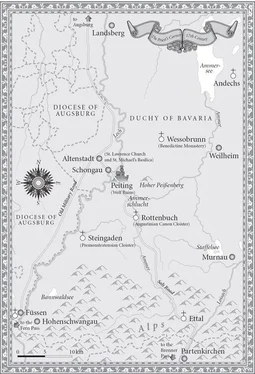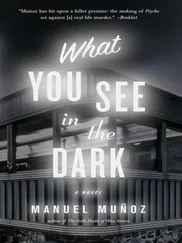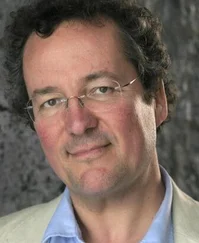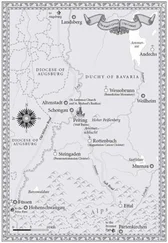Oliver Potzsch - The Dark Monk
Здесь есть возможность читать онлайн «Oliver Potzsch - The Dark Monk» весь текст электронной книги совершенно бесплатно (целиком полную версию без сокращений). В некоторых случаях можно слушать аудио, скачать через торрент в формате fb2 и присутствует краткое содержание. Жанр: Исторический детектив, на английском языке. Описание произведения, (предисловие) а так же отзывы посетителей доступны на портале библиотеки ЛибКат.
- Название:The Dark Monk
- Автор:
- Жанр:
- Год:неизвестен
- ISBN:нет данных
- Рейтинг книги:5 / 5. Голосов: 1
-
Избранное:Добавить в избранное
- Отзывы:
-
Ваша оценка:
- 100
- 1
- 2
- 3
- 4
- 5
The Dark Monk: краткое содержание, описание и аннотация
Предлагаем к чтению аннотацию, описание, краткое содержание или предисловие (зависит от того, что написал сам автор книги «The Dark Monk»). Если вы не нашли необходимую информацию о книге — напишите в комментариях, мы постараемся отыскать её.
The Dark Monk — читать онлайн бесплатно полную книгу (весь текст) целиком
Ниже представлен текст книги, разбитый по страницам. Система сохранения места последней прочитанной страницы, позволяет с удобством читать онлайн бесплатно книгу «The Dark Monk», без необходимости каждый раз заново искать на чём Вы остановились. Поставьте закладку, и сможете в любой момент перейти на страницу, на которой закончили чтение.
Интервал:
Закладка:
Suddenly there was a large ripping sound and Simon’s fall was broken.
He dangled helplessly a full ten feet over the ground, swaying back and forth like a marionette on a string. Looking up, he could see that a sharp branch had slit his jacket open from his waist almost to his collar.
Down below, Benedikta stared up at him open-mouthed. “My God, Simon! What are you doing up there?”
“What do you think? I was falling to my death! Up there in the tree I saw a man with a crossbow observing us, and-”
“Simon, first calm down. Try to grab hold of something close by.” Benedikta pointed to a branch that stood out at a right angle. It was about the thickness of an arm and looked solid. Simon tried to reach it but was just a few inches short. Carefully, he began to rock back and forth, coming closer to the branch each time. Above him, his jacket ripped a bit more. He was able to grab the bough just as the jacket finally tore into two halves with a loud rip. He felt a strong tug, he fell a bit more, and then he was able to get both arms around the bough. He hung there, his legs thrashing the air, and had no idea what to do next.
At this moment, he caught sight of the golden tablet right in front of him.
It was only about the size of a hand, and the bark of the tree had grown over it like a thick lip. It looked as if the tree had been eating away at the tablet, assimilating it bit by bit over the course of centuries. But the words in its center, inlaid in gold, had been unaffected by the wind, snow, rain, and hail and were quite legible.
Still suspended from the bough, Simon mumbled the engraved Latin lines as the crow came fluttering back and settled on the bough next to him, watching over his shoulder with curiosity.
IN GREMIO MARIAE ERIS PRIMUS ET
FELICIANUS. FRIDERICUS WILDERGRAUE
ANNO DOMINI MCCCX XVIII.
Despite the precarious position he was in, he couldn’t help but laugh aloud.
“Ha! This damned Templar,” he shouted so loudly it echoed all through the forest. “The sly, old devil! He did hide the message here-you were right!”
“What are you talking about?” Benedikta craned her neck to see better. “What’s up there? Tell me!”
Simon stopped laughing. His arms had begun to ache as if he were attached to the torture rack with big, heavy rocks pulling him down by the legs.
“A golden plaque up here…” he groaned. “From Friedrich Wildgraf a year before his death. And a saying…”
“What kind of a saying?”
“Damn! First get me get down from here!”
Benedikta grinned. “How about just letting go?”
“Letting go? It’s at least twelve feet down!”
“Oh, come now…ten, at most. Shall I catch you?”
Closing his eyes, Simon counted slowly to three, then let go.
With a loud shout, he fell kicking and floundering into a soft snowdrift at the foot of the tree. The landing was pleasantly soft. He lay there for a moment, checking that nothing was broken, but he seemed fine-something you could not say about his trousers.
“Damn, Benedikta!” he cursed as he thrashed about trying to free himself from the drift. “Who had the crazy idea of climbing up such a tall tree without a rope? I could have broken my neck!”
Benedikta shrugged. “At least it was worthwhile. Now tell me what it says up there on the plaque.”
Simon was about to speak when he remembered the man in the fir tree. In one desperate leap, the medicus extricated himself from the snow. “We have to get out of here at once! The fellow in the tree was armed, and there are surely others here in the forest.” He hobbled down the path as fast as he could, his tattered jacket fluttering behind him. “We’ve got to get back to the monastery! Follow me!”
Sighing, Benedikta ran after him.
Forty feet above, the stranger with the crossbow watched them leave. He raised his hands to his mouth and mimicked the caw of a jaybird.
Court Clerk Johann Lechner sat in his office, chewing on his quill pen and double-checking the city’s ledgers. The result was disastrous. The constant attacks in recent days had brought traffic almost to a standstill. All commercial goods transported along the major highways from Augsburg over the Brenner Pass and the Fern Pass had to be stored temporarily in Schongau. While the city collected a nice tax on every single bale, the Ballenhaus, the storage warehouse, and the Zimmerstadel down on the Lech were practically empty now. And the recent snowstorm had delivered the final blow. Schongau was bleeding to death, and the clerk had no idea where to get the money to pay the city’s long-overdue bills.
Johann Lechner sighed. The council had raked him over the coals that morning. The patricians respected him, but only as long as he was looking out for their interests, and Lechner had to wonder-and not for the first time-why he actually did so. The daily squabbles with these fat, pompous gas bags-who had nothing to think about but their next glass of wine, or their next shipment of salt or wool, or about how strenuous the trips to Munich and Augsburg were by coach-were the cause of all the miserable, unending paperwork. The city was a clock that had to be wound every day, and if it weren’t for him, Lechner was sure Schongau would wither away and become just another small provincial town.
That made it all the more important for him to put his foot down, to do something to make it clear that nobody could just come along and spit in the town’s face, and certainly not a band of filthy, ragged highwaymen and cutthroats.
There was a knock on the door. Lechner drew a line under the last entry and straightened his cap before calling out for his caller to enter.
Jakob Kuisl had to stoop to avoid bumping his head on the low doorway. His huge form completely filled the opening.
“You called for me, Your Excellency?”
“Ah, Kuisl!” Johann Lechner said, motioning for him to take a seat. “How strange…I was just thinking of you. Well, how was the excursion with Burgomaster Semer?”
“You know…?”
“Of course I know. We talked about it in the council meeting. The other gentlemen are not exactly pleased that you are giving Semer special treatment. Now his business is booming, and the rest are sitting around twiddling their fingers. Or were you attacked?”
Kuisl shook his head. “No, there were no crooks or gangsters anywhere. But we also didn’t tell anyone which route we were going to take.”
The clerk frowned. “Do you really think someone on the city council is listening in on the others and sending thugs out to get them?” Johann Lechner smiled, toying with the goose quill. “Tell me frankly, who do you suspect? That ambitious fellow Schreevogl or one of the four burgomasters-or perhaps, me? Are you going to put me on the rack and make me confess?”
Kuisl didn’t react to the clerk’s scornful tone. “The city council is the place where town leaders discuss business,” he replied simply. “If anyone wants to listen, that’s the best place to do it. All the patricians are equally suspect.”
Amused, the clerk shook his finger at the hangman. “The aldermen a group of murderers? Kuisl, Kuisl…It would be best to keep that idea to yourself. Executioners have been strung up on their own gallows for voicing suspicions far less serious than that. Besides, you’re forgetting the merchant from Augsburg-this Weyer fellow. He wasn’t at the council meeting, but he’s dead and buried now just the same.”
Jakob Kuisl shrugged. “We’ll see how it all fits together. Semer, in any case, didn’t talk to anyone and arrived safe and sound in Landsberg.”
“I hear you asked the burgomaster a favor,” Lechner said, abruptly changing the subject. “You wanted him to make some inquiries for you.” The clerk looked up at the ceiling, feigning indignation. “The burgomaster is now the hangman’s messenger boy, o tempora, o mores! What’s the world coming to? Can you let me know what’s so important you absolutely must know it, Kuisl?”
Читать дальшеИнтервал:
Закладка:
Похожие книги на «The Dark Monk»
Представляем Вашему вниманию похожие книги на «The Dark Monk» списком для выбора. Мы отобрали схожую по названию и смыслу литературу в надежде предоставить читателям больше вариантов отыскать новые, интересные, ещё непрочитанные произведения.
Обсуждение, отзывы о книге «The Dark Monk» и просто собственные мнения читателей. Оставьте ваши комментарии, напишите, что Вы думаете о произведении, его смысле или главных героях. Укажите что конкретно понравилось, а что нет, и почему Вы так считаете.












